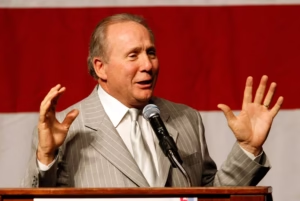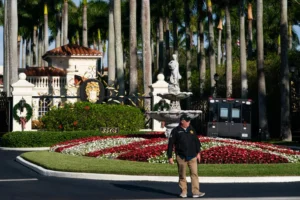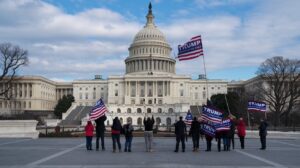NPR Sues Trump Over Executive Order Cutting Federal Funding
In a significant escalation of tensions between the Trump administration and public media, National Public Radio (NPR) has filed a federal lawsuit challenging President Donald Trump’s executive order aimed at eliminating federal funding for public broadcasters. The lawsuit, filed on May 27, 2025, contends that the executive order violates the First Amendment and oversteps presidential authority by attempting to defund NPR and the Public Broadcasting Service (PBS) through the Corporation for Public Broadcasting (CPB).
Executive Order 14290: A Direct Attack on Public Media
On May 1, 2025, President Trump signed Executive Order 14290, titled “Ending Taxpayer Subsidization of Biased Media.” The order directs the CPB and all federal agencies to cease funding for NPR and PBS, alleging that these organizations disseminate biased news coverage in violation of the Public Broadcasting Act of 1967. The administration argues that public funding for news programming is “not only outdated and unnecessary but corrosive to the appearance of journalistic independence” in the current U.S. media market.
The CPB, established by Congress as a private nonprofit corporation independent of the federal government, has pushed back against the order. In a statement, the CPB emphasized that it is not a federal executive agency subject to the President’s authority and that Congress directly authorized and funded CPB to be independent.
Legal Grounds: First Amendment and Separation of Powers
NPR’s lawsuit argues that Executive Order 14290 constitutes “textbook retaliation” against protected speech, violating the First Amendment rights of free speech and press. The suit also contends that the order infringes upon the separation of powers by attempting to override Congress’s authority over federal appropriations. The executive order seeks to cut off over $500 million annually appropriated by Congress to the CPB, which funds public media entities like NPR and PBS.
To bolster its case, NPR has enlisted top lawyers from the firm Gibson, Dunn & Crutcher, including Miguel Estrada, a former Republican nominee for the U.S. Court of Appeals, and media attorney Theodore Boutrous Jr., who previously represented CNN in a legal case against the Trump administration. Boutrous condemned the funding cut as “blatantly unconstitutional.”
Broader Context: A Pattern of Retaliation Against Media
This lawsuit is part of a broader pattern of the Trump administration’s confrontational stance toward media organizations. Earlier in his second term, Trump issued several executive orders targeting diversity, equity, and inclusion (DEI) programs and attempted to freeze federal funding for various programs, leading to multiple legal challenges.
The administration has also faced lawsuits from other media organizations. For instance, the Associated Press sued the Trump White House for denying access over a dispute regarding the naming of the “Gulf of Mexico,” and the law firm Perkins Coie sued over an executive order targeting it.
Implications for Public Broadcasting and Democracy
The outcome of NPR’s lawsuit could have significant implications for the future of public broadcasting in the United States. If the executive order stands, it could set a precedent for the executive branch to unilaterally defund media organizations it deems unfavorable, undermining the independence of the press.
Public broadcasting plays a crucial role in providing educational and informational content to the American public. Programs like “All Things Considered” and “Morning Edition” are staples for millions of listeners. The loss of federal funding could jeopardize these programs and the services they provide, especially in underserved communities.
Conclusion: Upholding the Independence of Public Media
NPR’s legal challenge against Executive Order 14290 underscores the ongoing struggle to maintain the independence of public media in the face of political pressures. As the case proceeds through the courts, it will test the resilience of constitutional protections for free speech and the separation of powers.
The lawsuit serves as a reminder of the importance of safeguarding institutions that provide unbiased and informative content to the public. In an era of increasing polarization, the role of public broadcasters in fostering informed citizenry is more vital than ever.
Subscribe to trusted news sites like USnewsSphere.com for continuous updates.
[USnewsSphere.com / apn]





